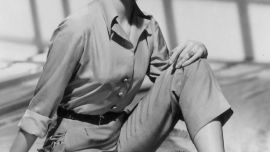It’s been a long time since a Netflix-backed Argentine production stirred such anticipation as El Eternauta.
Even those who haven’t read the 1957 comic by Héctor Oesterheld and Francisco Solano López recognise the silhouette of its protagonist. Judging by the numbers from the streaming giant, both long-time fans and newcomers are curious: since its April 30 premiere, the series has topped Netflix’s charts in Argentina and at least 20 other countries, according to reports.
Ricardo Darín plays Juan Salvo – El Eternauta – a “collective hero” with a motto that stands in stark contrast to the message coming from those currently in power in Argentina: “No-one is saved alone,” he says, facing a global threat.
Behind the camera is Bruno Stagnaro, who spoke with Perfil about the project and confirmed it had been renewed for a second season.
Do you feel the impact of having made El Eternauta into a series?
Yes, completely! But in a way, I imagined it from the start, because of what El Eternauta means, even for me personally.
If you hadn’t directed it, what would you have looked forward to most from the adaptation?
To see how they handled the mess of translating the comic into an audiovisual format.
Because of how expensive it’s assumed to be?
People always talked about the economic challenges of adapting El Eternauta, and I do think that’s a major hurdle, but not the most important one.
For me, the real challenge was building a narrative that captures the atmosphere [of the original] without becoming trapped in literal translation. That would have been a mistake.
When were you first approached about the project?
It was right after finishing [his 2017 film] Un gallo para Esculapio. My partner and I met to figure out our next steps. At the time, I wanted to make a film, and K&S [the production company] asked if I had something in mind.
I mentioned a story I’d been sitting on since 2004 that had some parallels with El Eternauta, and they said: “Well, we’ve got this.” That’s how the first proposal from Netflix came up – turning El Eternauta into a series.
What went through your mind when they made the offer?
I couldn’t believe it – but I was cautious too. I’ve read the comic countless times, starting from the age of 10. And that became a challenge: to adapt it critically.
Taking a reverent approach would have been a mistake. Of course, I treated it with the utmost respect, but I also accepted the pain of making the changes necessary to bring it to life.
…
The first thing I said was: “I love El Eternauta, but from what I remember, it looks better from a distance, like the sea” – when you get closer with today’s narrative lens, it starts to push back.
It was a children’s serial, three pages a week, that over time took on this epic status. It became a foundational text in our culture — but it’s still a comic. So the challenge was letting it breathe as what it is, without becoming a slave to its literal form.
Your first experience with it was as a 10-year-old reader? Did any childhood memories influence specific scenes?
Not exactly. What did happen is that I initially approached the project with extreme caution. The fact that so many previous adaptation attempts failed was a red flag – it suggested something deeper. My first reaction was naïve; I just saw it as a story.
What changed when you revisited it for the adaptation?
I immediately felt it needed serious restructuring. As a director, I realised that trying to copy it word-for-word would backfire. Comics let you accept things within their own logic. But transferring them literally to the screen often creates a major clash with what feels believable.
Is that why you brought El Eternauta into the present day?
Yes, and not for budget reasons, though that’s what people tend to assume. The comic was set in 1957, but for me, it was important to make the series contemporary because that was [true to] the original spirit.
El Eternauta was never a period piece — it was current when it came out. Treating it as something frozen in time would have betrayed its essence.
Before the series became a reality, did you ever imagine an actor who could play El Eternauta?
Rodrigo de la Serna, obviously. Others may have fit the role too, but I didn’t explore casting until I had a clearer idea of the story and my approach.
Why does the series include the Malvina War?
We needed a plausible reason why Juan Salvo is so good with weapons. In the comic, Oesterheld solves it by making him a reservist and a crack shot. But I wanted to avoid the film cliché of a random guy – say, a bank clerk º suddenly turning into an expert sniper. That didn’t sit right.
So you made him a Malvinas veteran?
Yes. That explanation made perfect sense and tied up several threads at once.
Such as?
First, from a historical perspective, it offers a way to assign meaning to a war surrounded by ambiguity. There’s a legacy we carry, and it expresses itself in different ways, including how we view the people who put their lives on the line for us, no matter the madness that surrounded that war.
These were young people who were willing to fight and many died doing so. As a society, we barely acknowledge that. It’s invisible. So bringing that to the present, giving it meaning and a protagonist, that made sense.
Are you working on season two?
Yes.





















Comments